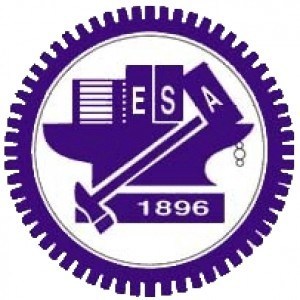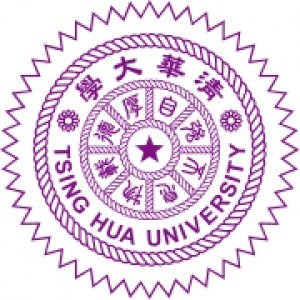Photos of university
The Master’s Program in Sustainable Chemical Science and Technology at National Chiao Tung University is a cutting-edge interdisciplinary program designed to equip students with comprehensive knowledge and practical skills in the field of sustainable chemistry. This program aims to address the global challenges related to environmental pollution, resource depletion, and the need for eco-friendly chemical processes. Students will explore advanced concepts in green chemistry, renewable resources, waste reduction, and environmental protection through a curriculum that integrates chemistry, engineering, and environmental sciences. The program emphasizes innovative research and industrial applications, preparing graduates to contribute to the development of sustainable chemical technologies that align with the principles of circular economy and sustainable development goals. Courses cover topics such as sustainable materials, catalysis, green synthesis methods, life cycle assessment, and environmental impact analysis. Students are encouraged to engage in hands-on research projects, internships, and collaborations with industry partners to gain real-world experience. The program also fosters critical thinking and problem-solving skills necessary for tackling complex environmental and technological challenges. Graduates of this program will be well-equipped for careers in research institutions, chemical industries, environmental agencies, and academia, where they can promote sustainable practices and develop innovative solutions for a greener future. Through a combination of theoretical coursework and practical training, the Master’s Program in Sustainable Chemical Science and Technology at National Chiao Tung University aims to nurture forward-thinking chemists dedicated to advancing sustainable development globally.
Required Courses: Courses to be taken by all students.
- Introduction to Sustainable Chemical Science and Technology (3 credit units per semester, a total of 6 credit units)
- Seminar (1 credit unit per semester, a total of 2 credit units)
- Colloquium (1 credit unit per semester, a total of 2 credit units)
- Lab Rotation (0 credit unit for two semesters, identify thesis advisor)
- Elementary Chinese(0 credit unit for two semesters, Required for all international students)
Elective Courses (Core): Select at least one course
- Advanced Organic Chemistry
- Advanced Inorganic Chemistry
- Advanced Analytical Chemistry
- Advanced Physical Chemistry I
Elective Courses
(Students with a B.S. degree must take at least 9 credit units from following list, students with a M.S. degree is not subject to this constraint.)
- Advanced Physical Chemistry II
- Advanced Physical Chemistry III
- Advanced Chemical Biology I
- Advanced Chemical Biology II
- Advanced Chemical Kinetics
- Advanced Chemical Thermodynamics
- Advanced Chemistry of Materials
- Advanced Group Theory
- Advanced Nanotechnology A
- Advanced Nanotechnology B
- Advanced Spectroscopy
- Atmospheric Chemistry and Climate Changes
- Basic Scientific Writing and Presentation in English
- Biochemical Analysis
- Chemical Thermodynamics
- Chromatography
- Computational Materials Science
- Computational Quantum Chemistry
- Computer Modeling for Drug Design
- Experimental Molecular Biophysics
- Introduction of Synchrotron & Laser Techniques in Biomedical Research
- Introduction to Molecular Imaging and Analysis
- Laser Bio/Nano Science
- Linear Algebra for Scientist
- Mass Spectrometry
- Modern Experimental Techniques – Chemistry
- Molecular Spectroscopy
- Organometallic Chemistry
- Pharmaceutical Chemistry
- Principle of Photochemistry
- Quantum Chemistry
- Research Techniques in Physical Chemistry
- Seminar on Instrumental Analysis I
- Seminar on Instrumental Analysis II
- Special Topic - Into Supramolecular Photo Science
- The Methods of Computational Chemistry
- Transferable Skills for Chemists
- Writing Skills for Chemists
Requirements
- Formal undergraduate and graduate academic records or transcripts
- Graduate Record Examination (GRE) scores in General Test. GRE is highly recommended. However, an applicant who fails to meet this requirement may submit additional criteria for committee evaluation. The GRE Subject Test is optional and one of the following subjects: Chemistry, Physics, Mathematics, or Biology is strongly recommended. GRE substitution: If under special circumstances the test is not taken, some proof of applicant’s competency might be considered. This proof should be more than just recommendation letters and transcripts, for example, documents like the award records, exam scores of national or international level, scientific publications, etc. will be helpful.
- Applicants whose first or native language is not English are required to submit one of following English proficiency test report (the listed scores are strongly recommended): TOEFL iBT 79, Computer-based 213, Paper-based 550, IELTS 550
- Three letters of recommendation. Each letter comments on the applicant’s personal character, and qualifications for independent study, including intellectual ability, research potential, and scientific motivation. One of the letters should be provided by the applicant’s advisor.
- The admission for Students with a B.S. degree.The person has graduated from a university and has a bachelor’s degree, has five or more years of practical experience related to their field of study, and submits an example of their written work with the quality of a master’s thesis
- Statement of purpose (plan for graduate study) in English.
Specifically, we would like to see following items/questions being addressed.
- What area/topics do you want to study and research?
- Why do you want to study and research in this area/topics?
- How can SCST program help you pursue this research area/topics?
Scholarships
- Fellowship Support and Stipends
Fellowship will be granted for applicants who receive admission. The stipend levels are about NT$34,000/month (~USD1133/month) for the first year. Additionally, the support will be extended to two more years for those students who perform well academically. The academic performance of each student will be reviewed by the Academic Committee every year. The Committee may decide to reduce the students’ stipend level if his or her performance is less satisfactory. In subsequent years, the financial support will be provided by the student’s thesis advisor with his/her research grant. The amount of the support will be under the discretion of the advisor.
The Master’s program in Sustainable Chemical Science and Technology at National Chiao Tung University (NCTU) is designed to prepare students for careers in the development and application of environmentally friendly chemical processes and sustainable technologies. The program emphasizes interdisciplinary approaches combining principles of chemistry, environmental science, and engineering to address global challenges such as pollution, resource management, and renewable energy. Students undertake coursework that covers advanced topics in green chemistry, environmental chemistry, chemical process engineering, and renewable materials, fostering a comprehensive understanding of sustainable practices within the chemical industry. The curriculum also incorporates practical laboratory work, research projects, and collaborations with industry partners, enabling students to gain hands-on experience and apply theoretical knowledge to real-world problems. Graduates of this program are equipped to work in various sectors, including chemical manufacturing, environmental consulting, research and development, and policymaking, contributing to the innovation of sustainable solutions. The program is also aligned with international standards and promotes research excellence through its faculty’s expertise and ongoing projects in sustainability and green chemistry. Students have the opportunity to participate in seminars, conferences, and internships, enhancing their professional network and career prospects in the global green technology sector. The university provides well-equipped laboratories and facilities dedicated to sustainable chemical research, fostering an environment of innovation and collaboration. Overall, the Sustainable Chemical Science and Technology program at NCTU aims to cultivate experts capable of leading the transformation toward sustainable chemical practices, supporting the transition to a greener economy and healthier environment for future generations.


